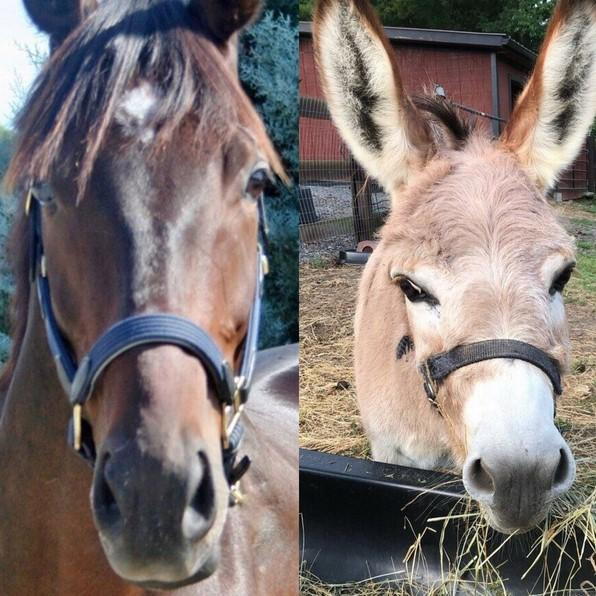Horse versus Donkey Metabolism
- posted: Mar. 17, 2022

When it comes to horses and donkeys there are considerable differences in hormones, metabolism, and even how they process drugs. By understanding these differences, it can help veterinarians diagnose and treat donkeys. Donkeys evolved to be an “energy-efficient” species living off tough, sparse forage and browse usually in very dry climates. This could explain how they manage glucose and fat and are able to metabolize differently than horses do.
As we have domesticated donkeys and given them better grass forage to consume, this has led to donkey metabolic syndrome (DMS). DMS is the impairment of regulation of insulin, which can lead to laminitis or other complications. Donkeys, however, are far more efficient than horses in how they use glucose— “like cash, you know, (they) spend it easily”—and fat— “like savings, slow to save, slow to make withdrawals, but good to have.”
When it comes to pulling blood for insulin and glucose, the diagnostic testing is different. In horses the insulin effect after a meal is much faster than the donkeys. Due to this knowledge, it is best not to go based off horse values as this can lead to misdiagnoses.
Weight loss is also very different in donkeys. If a donkey is fasting it could lead to high concentration of lipids (fat) in the blood (also known as hyperlipidemia) which can be fatal. The process of facilitating weight loss must be slow rather than fast. Standard commercial diets and grazing muzzles do not work as well and can cause stress. Like horses, donkeys can develop Cushing’s disease. However, their hormone values tend to be slightly higher than normal horse values. While their “normal” value can be slightly higher like horses, the values do change throughout the seasons.
Donkeys are also experts at metabolizing drugs much faster than horses. This is due to the fact that they tend to hold more water in their cells, allowing their system to flush the drugs out much faster than horses do. With that being said, veterinarians should consider giving a higher dose or more frequent doses of non-steroidal anti-inflammatories (NSAIDS), pain relievers, sedatives, and tranquilizers. However, this is a fine line to walk, and they can easily overdose on certain medications.
If you have any concerns or want to speak with your veterinarian about your horse or donkey’s health, give us a call to set up an appointment.
Location
Find us on the map
Browns Summit Location
5373 NC Hwy 150
Browns Summit, NC 27214, United States

